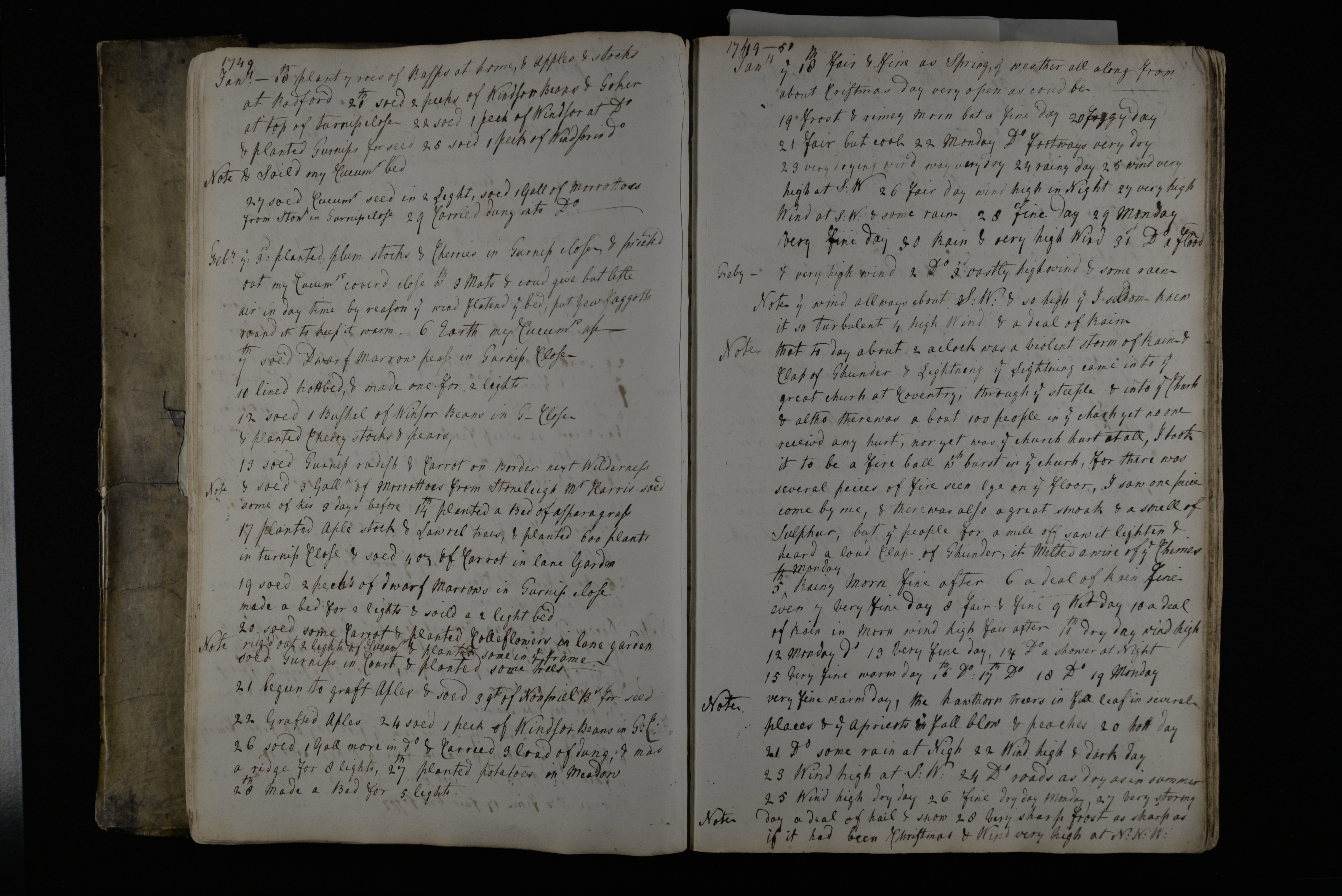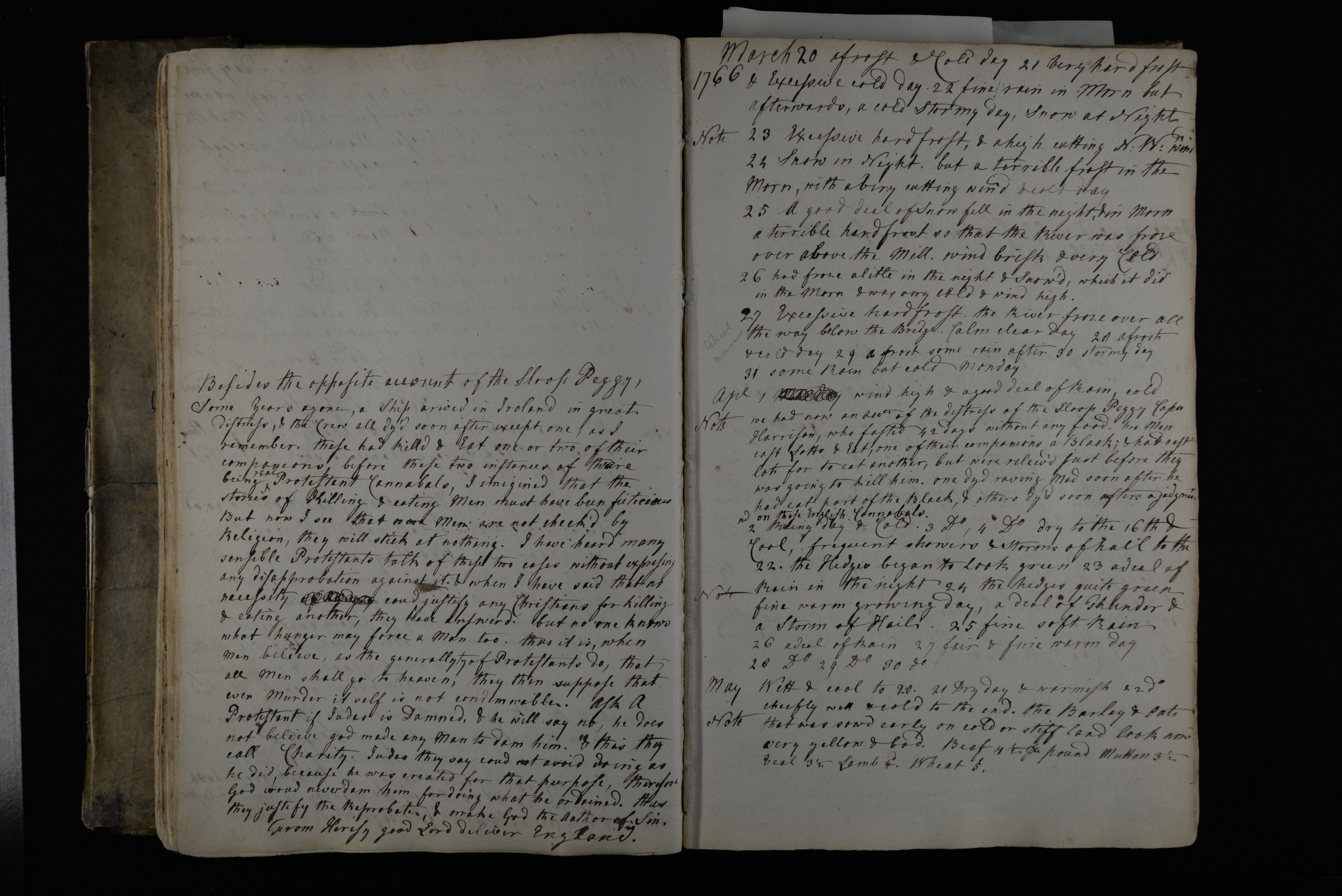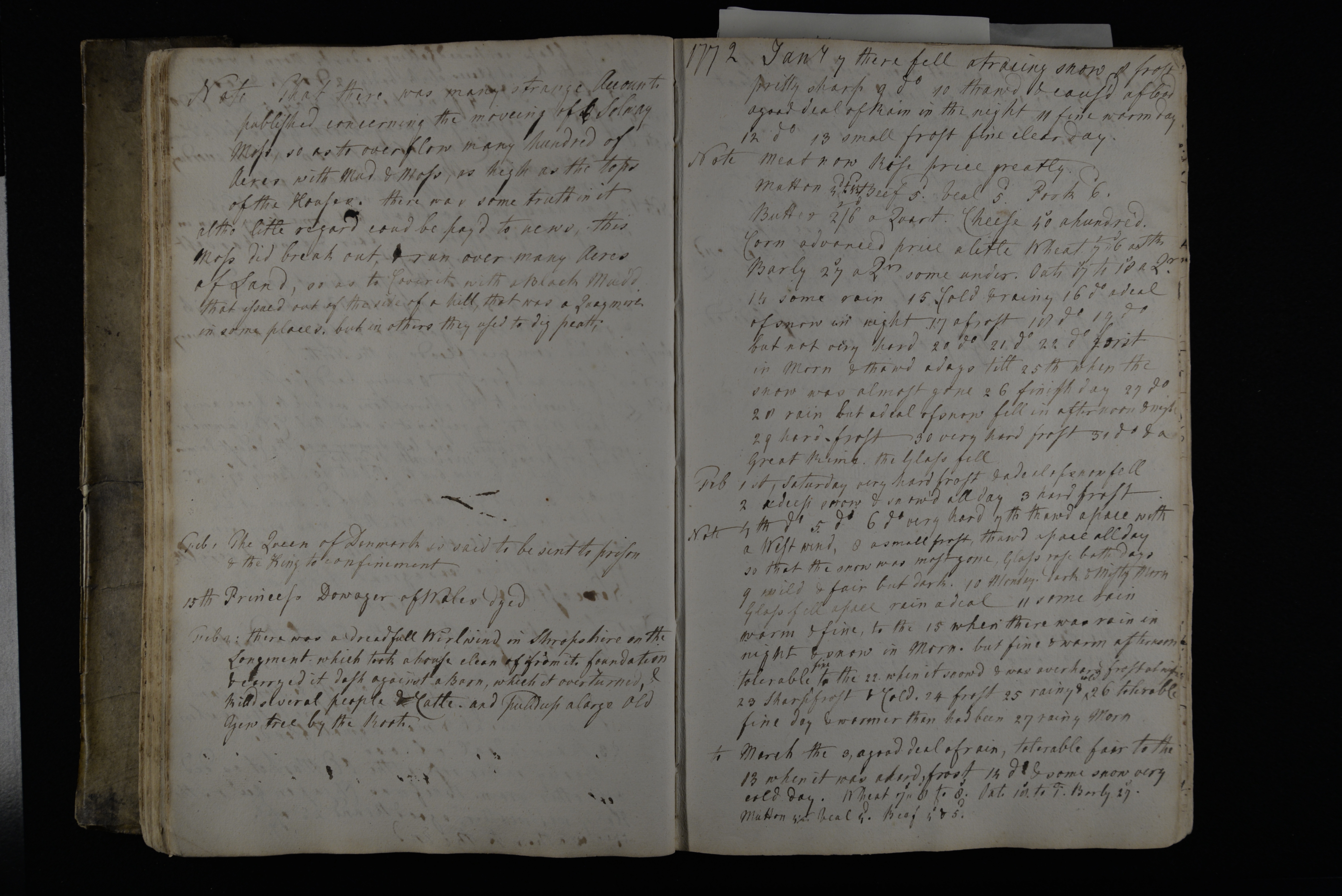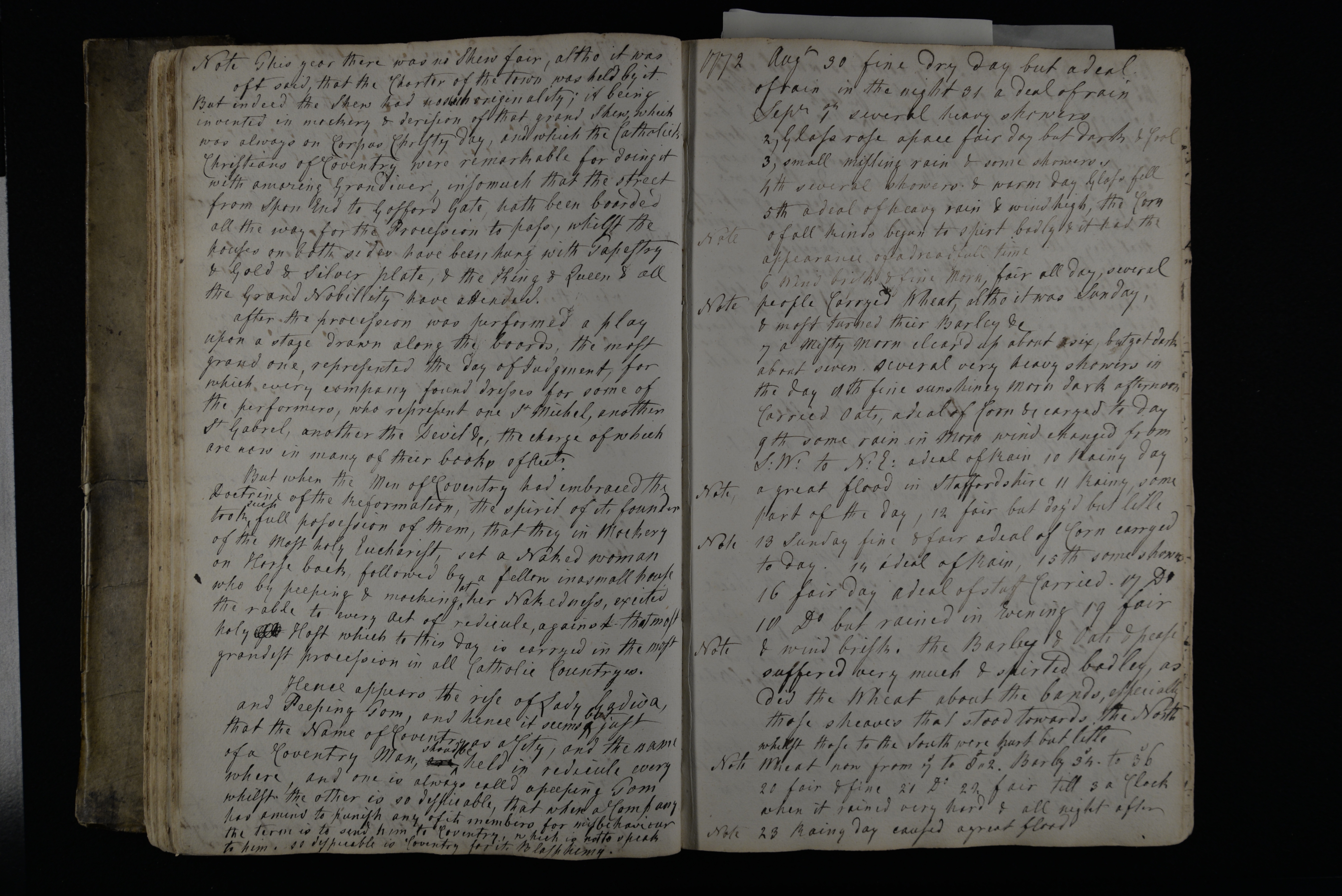Coventry Charterhouse: The Diary of John Whittingham
28 April 2022
an event to uncover the past and reveal the future of the Charterhouse Heritage Park, on Sunday 22 May.
We are excited to engage with the local community and delve into the heritage stories of Charterhouse (The Carthusian Priory of St Anne), one of only nine Carthusian monasteries in the country, founded in 1381/2, that occupied 14 acres of land at Shortley, south-east of the city wall, immediately south of Bisseley Mill and east of the River Sherbourne. Richard II laid the foundation stone for the church (at the east end of the choir) in 1385, but already seven cells had been given by various benefactors for the monks and the numbers increased to eleven. The establishment eventually included lay brethren and servants, while 12 schoolboys were housed there.
For the occasion of Heritage Park Reveals, we recently digitised a memorandum book of John Whittingham, a Charterhouse gardener.
John Whittingham (active around 1746-1781) held a tenancy in Charterhouse Leys and Kerseley tithes, as well as occupying crofts near New Gate. His memorandum book in our collection is a particularly interesting diary of his daily activities whilst tending to his garden. Principal events of his life are listed on the first page, where he notes that on 29 September 1753 he went to Charterhouse. Much detail is included on meteorological observations in Coventry at the time and perhaps, unintentionally, Whittingham has offered us a personal account of contemporary socio-political history, particularly concerning his religious views. Passing remarks are made on events & goings on in Coventry and make for fascinating reading.
Below are a few of our favourite excerpts:
Entry 1-
4 February 1750, Lightning strikes the ‘great Church at Coventry’

Whittingham recalls a time when lightning struck the ‘great Church at Coventry’:
‘that to day about 2 a clock was a violent storm of rain and clap of thunder & lightning...
...lightning came into the great church at Coventry, through the steeple and into the Church & altho there was about 100 people in the church yet no one received any hurt nor yet was the church hurt at all. I took it to be a fire ball which burst in the church for there was several pieces of fire seen lye on the floor, I saw one piece come by me, & there was also a great smoak & a smell of Sulphur, but the people for a mile off saw it lighten & heard a loud clap of thunder, it melted a wire of the Chimes.’
Entry 2-
1 April 1766 Cannibalism: 'From heresy, good Lord deliver England'

Whittingham refers to stories of cannibalism on the ‘Sloop Peggy' in distress at sea, which reminded him of a similar report of cannibalism on a British ship some years before. As the men involved were Protestants, Whittingham took the opportunity to express his strong anti-Protestant sentiment, stating that men not checked by religion will 'stick at nothing' and that many 'sensible' Protestants have refused to express disapprobation at the two cases. The last line in the entry pleads, 'From heresy, good Lord deliver England'.
Entry 3-
2 February 1772, A whirlwind in Shropshire:

‘There was a dreadful whirlwind in Shropshire on the Longment which took a house clean off from its foundation & carryed it’.
Entry 4-
August 1772, Coventry Show Fair, or lack of it:

The fact that no show fair was held in Coventry in 1772 gave Whittingham another opportunity to express his anti-Protestant views by contrasting the grandeur of the show in Catholic Coventry with what he perceives to be the lewdness and blasphemy of post-Reformation society. He sees, for example, Lady Godiva and Peeping Tom as a mockery of the Eucharist which make the name of Coventry ridiculous.
The Diary of John Whittingham can be found in our online catalogue, under the reference PA201/1 and can be appreciated in its entirety at Coventry Archives, by appointment during our normal opening hours (Wednesday-Friday 10:30-15:30). It has also been fully digitised and is available to view via Coventry Digital by clicking here.
- Written by Vida Milovanovic